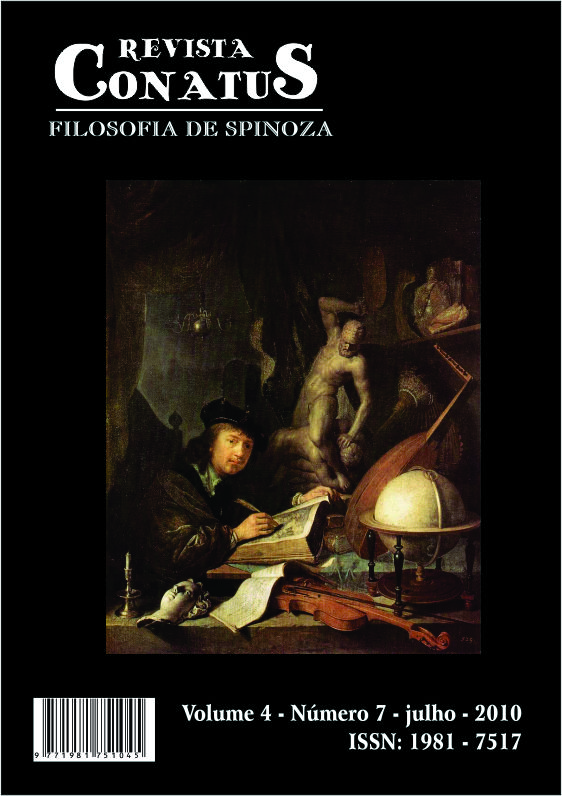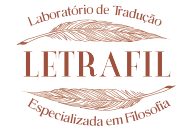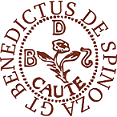O corpo entre o cadáver e a mecânica: a patética cartesiana
Palavras-chave:
Alma. Corpo. Vontade. Paixões. Mecanicismo.Resumo
Em Descartes, a ligação entre imaginação e paixão é contingente, seja pelo acaso, seja pela vontade, seja pela associação de uma representação a um afeto por hábito ou pelo esforço de nossa atenção, sendo que essa ligação não comporta nenhuma necessidade. A moral cartesiana determina a domínio das paixões como resultado do esforço da vontade, como constrangimento exercido sobre o corpo, como dominação das paixões pela consciência. A dominação da alma sobre as paixões será adquirida por meio de representações que a alma suscitará voluntariamente, que associadas aos afetos, suscitarão ou despertarão os afetos – e trata-se sempre de uma ação indireta sobre as paixões. Sendo assim, as idéias em si mesmas, por mais verdadeiras que sejam, nada podem contra as paixões – o que enfim nos fornece uma patética, não uma ética.
Abstract
The body between the body and mechanics: the Cartesian pathetic. In Descartes, the connection between imagination and passion is contingent, whether by chance or by will or by an association representing a habit or affection for the effort of our attention. Descartes determines the domain of the passions as a result of the effort of will, as constraint exerted on the body, such as domination of the passions by consciousness. The domination of the passions of the soul will be acquired by means of representations that stir the soul voluntarily, that associated with emotions, excite or arouse the affections - and it is always an indirect action on the passions. Thus, the ideas in themselves, however true they may be, can not prevail against the passions - which finally gives us a pathetic, not an ethics.
Key-words: Soul. Body. Will. Passions. Mechanism.










